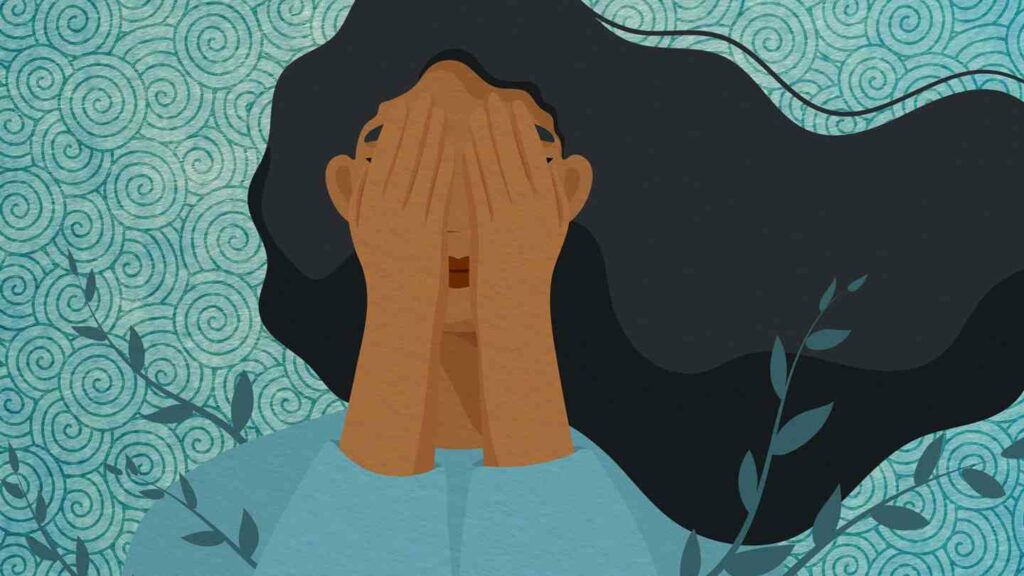Depression is a pervasive mental health condition that affects millions of individuals across the globe, significantly impacting their quality of life. While seeking professional help is a crucial step toward recovery, many find themselves overwhelmed by the associated costs of depression therapy. This comprehensive guide aims to demystify depression therapy costs, providing readers with valuable insights, practical tips, and resources to make informed decisions about their mental health journey.
Contents
What Is The Importance Of Depression Therapy?
 Depression therapy is a critical component in the treatment and management of depression, a severe mental health disorder that can profoundly affect an individual’s daily life, relationships, and overall well-being. The importance of depression therapy cannot be overstated. Below are key reasons highlighting the importance of depression therapy:
Depression therapy is a critical component in the treatment and management of depression, a severe mental health disorder that can profoundly affect an individual’s daily life, relationships, and overall well-being. The importance of depression therapy cannot be overstated. Below are key reasons highlighting the importance of depression therapy:
- Professional Support and Guidance
Therapists offer a supportive and non-judgmental space, allowing individuals to open up about their struggles. This expert intervention is crucial. Because it ensures that individuals receive appropriate care and guidance tailored to their unique situation.
- Development of Coping Strategies
Therapy is instrumental in helping individuals develop effective coping strategies to manage their symptoms of depression. By learning and practicing new skills within the safe environment of the therapy room, individuals can build resilience and better navigate life’s challenges.
- Improved Self-Awareness and Insight
Depression therapy encourages a deeper understanding of oneself, promoting self-awareness and insight. This process helps individuals recognize harmful thought patterns and behaviors associated with depression.
- Addressing Root Causes
A significant aspect of depression therapy is exploring and addressing the root causes of the disorder. This holistic approach ensures that individuals receive comprehensive care, promoting long-term healing and recovery.
- Prevention of Future Episodes
The skills and strategies learned in therapy extend beyond the treatment of current symptoms, helping to prevent future depressive episodes. Individuals leave therapy equipped with a toolkit of resources, ready to face future challenges with resilience.
- Empowerment and Self-Efficacy
Therapy empowers individuals to take control of their mental health, fostering a sense of self-efficacy and confidence. This empowerment is crucial, as it ensures that individuals are active participants in their recovery journey.
Therefore, depression therapy is an invaluable resource in the treatment, offering a wide range of benefits that contribute significantly to an individual’s recovery and long-term well-being.
What Is The Depression Therapy Cost?
 In India, the cost of depression therapy can vary widely depending on various factors such as the type of therapy, the therapist’s qualifications and experience, and the location of the therapy sessions. However, to provide a general overview:
In India, the cost of depression therapy can vary widely depending on various factors such as the type of therapy, the therapist’s qualifications and experience, and the location of the therapy sessions. However, to provide a general overview:
General Pricing Range
- Public Healthcare Facilities: Treatment for depression in government hospitals or public healthcare facilities can be significantly cheaper, and in some cases, even free. However, these facilities might have longer waiting times due to high demand.
- Private Therapists and Clinics: The cost in private settings can range from INR 500 to INR 3,000 or more per session, depending on the therapist’s experience and the location of the clinic.
- Psychiatrists: Consultations with psychiatrists, who might prescribe medication in addition to providing therapy, can range from INR 1,000 to INR 3,000 per session.
Online Therapy Platforms
- Cost-Efficient Options: Online therapy platforms have gained popularity in India, offering more affordable and accessible options. These platforms can charge anywhere from INR 500 to INR 2,000 per session.
- Subscription Plans: Some online platforms also offer subscription plans, which might include a certain number of sessions per month and additional resources, ranging from INR 2,000 to INR 7,000 per month.
Group Therapy
- More Affordable: Group therapy sessions, where a therapist works with multiple individuals at once, can be a more cost-effective option. These sessions might cost between INR 300 to INR 1,000 per person.
Community and Non-Profit Organizations
- Low-Cost or Free Services: There are also several community and non-profit organizations in India that offer low-cost or free mental health services, including therapy for depression.
Duration and Frequency
- Impact on Overall Cost: The duration and frequency of therapy sessions will also impact the overall cost of treatment. Short-term therapies might last for a few weeks or months, while long-term therapies can extend over a longer period.
Overall, while the cost of depression therapy in India can vary widely, there are numerous options available to suit different budgets and preferences. From public healthcare facilities and private clinics to online platforms and community organizations, individuals have access to a range of services to support their mental health journey.
What Are Some Influencing Factors?
The following are some factors that largely influence the depression therapy cost:
Geographic Location
The cost of depression therapy in India can vary significantly depending on the geographic location. Metropolitan cities like Mumbai, Delhi, Bangalore, and Kolkata tend to have higher living costs. This is reflected in the pricing of therapy services. In contrast, smaller cities or rural areas may offer more affordable options.
Therapist’s Qualifications and Experience
Highly qualified therapists with extensive experience and specialized training in mental health tend to charge more for their services. In contrast, therapists who are relatively new to the profession or those with fewer qualifications may offer more affordable rates.
Type of Therapy
There are various types of therapy available for treating depression, and each comes with its own cost implications. For example, Cognitive Behavioral Therapy (CBT), which is one of the most evidence-based treatments for depression, might be more expensive due to its proven effectiveness.
Duration and Frequency of Sessions
The length and number of therapy sessions required can impact the overall cost of treatment. Some individuals might need only a few sessions to address their concerns, while others may require long-term support. Additionally, the standard duration of a session is around 50 minutes to an hour. However, some therapists might offer extended sessions at a higher rate.
Insurance and Health Plans
In India, the coverage of mental health services by insurance companies is still evolving. Some insurance plans might cover the cost of therapy, either partially or in full, which can significantly reduce out-of-pocket expenses. It’s important for individuals to check their insurance policies and understand what mental health services are covered.
Demand and Availability
The demand for mental health services and the availability of therapists in a particular area can influence therapy costs. High demand and limited availability might lead to higher charges, while areas with more therapists might have more competitive pricing.
Facilities and Amenities
The amenities and facilities provided by the therapy center or clinic can also play a role in determining costs. Centers with state-of-the-art facilities, comfortable settings, and additional resources might charge more for their services.
Understanding these factors can help individuals make informed decisions about their mental health care, ensuring they find the right support within their budget.
How Can I Manage My Depression Therapy Cost?
 Managing the costs of depression therapy requires careful consideration and planning. Here are some strategies that can help:
Managing the costs of depression therapy requires careful consideration and planning. Here are some strategies that can help:
- Research Various Modalities: Familiarize yourself with the different types of therapy available and their associated costs. Some therapeutic approaches may be more affordable than others.
- Consider Group Therapy: Group sessions can be less expensive than one-on-one therapy and still provide valuable support.
- Negotiate Based on Income: Some therapists offer sliding scale fees based on your income. Don’t hesitate to discuss your financial situation and inquire about adjusted rates.
- Cost-Effective and Convenient: Online platforms often provide therapy services at a lower cost than in-person sessions. They also save travel time and expenses.
- Look for Discounts and Offers: Some platforms offer discounts for first-time users or reduced rates for package deals.
- Understand Your Benefits: Review your health insurance policy to see if it covers mental health services, and understand the extent of the coverage.
- Affordable Services by Trainees: Some training institutions and universities offer therapy services provided by students or trainees under supervision, at a reduced cost.
- Access to Low-Cost or Free Services: There are community centers and non-profit organizations that provide mental health services at low or no cost.
- Explore Government Programs: Check if there are any government-funded programs that offer subsidized mental health services.
- Flexible Payment Options: Some therapists may offer payment plans that allow you to spread the cost over time.
- Workplace Support: If your employer offers an EAP, take advantage of the program as it may cover a certain number of therapy sessions.
- Complement Therapy with Self-Help: Engage in self-help strategies and join support groups to complement your therapy sessions.
- Free or Low-Cost Resources: Utilize free or low-cost resources, such as books, online articles, and community groups, to support your mental health journey.
By exploring various options, negotiating fees, and utilizing available resources, you can find a manageable and sustainable way to afford depression therapy and prioritize your mental health.
Conclusion
Navigating the depression therapy cost in India requires a thoughtful approach, taking into consideration the wide array of available options and potential financial support mechanisms. By thoroughly researching different therapy modalities, negotiating sliding scale fees, utilizing online platforms, and prioritizing mental health within personal budgets, individuals can access the support they need.
The journey towards mental well-being is invaluable. And understanding how to manage therapy costs ensures that this crucial support is accessible, enabling individuals to invest in their mental health and foster resilience and recovery. If you are experiencing depression-related issues, Online Depression Counseling at TherapyMantra can help: Book a trial Online therapy session


